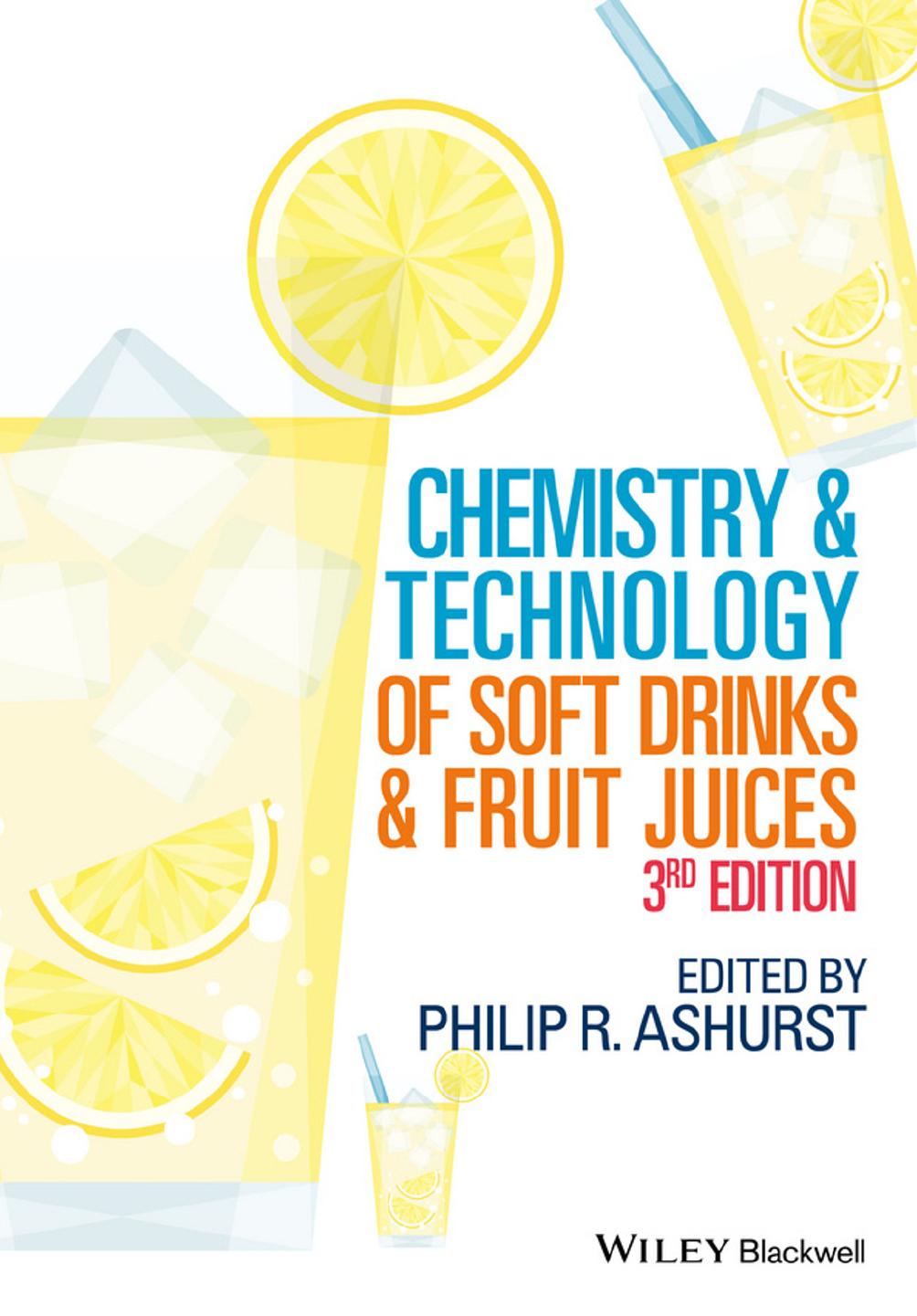
书籍简介
- Introduction
- Trends in beverage markets
- Fruit and juice processing
- Water and the soft drinks industry
- Other beverage ingredients
- Non‐carbonated beverages
- Carbonated beverages
- Processing and packaging
- Packaging materials
- Analysis of soft drinks and fruit juices
- Microbiology of soft drinks and fruit juices
- Functional drinks containing herbal extracts
- Miscellaneous topics
本书pdf是 文字版,书签良好。
Introduction
1.1 Overview
1.2 Soft drinks
1.3 Fruit juices
1.4 Packaging
1.5 Summary
Trends in beverage markets
2.1 Introduction
2.2 Definitions
2.3 Beverage consumption trends
2.4 Consumption charts
2.5 Regions and markets
2.6 Market share charts
2.7 Main drivers in consumption
2.8 Conclusion
Fruit and juice processing
3.1 Introduction
3.2 Fruit types
3.3 Fruit types for processing
3.4 General comments on fruit juice processing
3.5 Juice processing following extraction, ‘cleaning’ and clarification
3.6 Volatile components
3.7 Legislative concerns
3.8 Quality issues
3.9 In conclusion
Water and the soft drinks industry
4.1 Usage of water in the industry
4.2 Sources of water
4.3 Quality standards relating to water
4.4 Processing water
4.5 Analytical and microbiological testing of water
4.6 Effluents
Other beverage ingredients
5.1 Introduction
5.2 Factors influencing development of the industry
5.3 The move towards standardisation
5.4 The constituents of a soft drink
5.5 Water
5.6 Acidulents
5.7 Flavourings
5.8 Colours
5.9 Preservatives
5.10 Other functional ingredients
5.11 Food safety
5.12 Future trends
Non‐carbonated beverages
6.1 Introduction
6.2 Dilutable beverages
6.3 Ready‐to‐drink non‐carbonated products
6.4 Fruit juices and nectars
Carbonated beverages
7.1 Introduction
7.2 Carbon dioxide
7.3 Carbon dioxide production
7.4 Carbonation
7.5 Syrup preparation
7.6 De‐aeration
7.7 Carbonators
7.8 Filling principles
7.9 Process control
7.10 Future trends
Processing and packaging
8.1 Introduction
8.2 Juice extraction
8.3 Blending
8.4 Processing
8.5 Control of process plant
8.6 Factory layout and operation
8.7 Hazard Analysis Critical Control Points
8.8 Good manufacturing practice
8.9 Cleaning in place
8.10 Packaging
8.11 Conclusion
Packaging materials
9.1 Introduction
9.2 Commercial and technical considerations
9.3 Processing
9.4 Bottles
9.5 Closures
9.6 Cans
9.7 Cartons
9.8 Flexible pouches
9.9 Multipacks
9.10 Secondary packaging
9.11 Pack decoration
9.12 Environmental considerations
9.13 Conclusions
Analysis of soft drinks and fruit juices
10.1 Introduction
10.2 Laboratory accreditation
10.3 Sensory evaluation
10.4 Water
10.5 Sweeteners
10.6 Preservatives
10.7 Acidulants
10.8 Carbonation
10.9 Miscellaneous additives
10.10 Analysis of colours used in soft drinks
10.11 Vitamin analysis in soft drinks systems
10.12 Methods used to detect juice adulteration
10.13 Methods used to assess the juice or fruit content of soft drinks
10.14 Conclusions
Microbiology of soft drinks and fruit juices
11.1 Introduction
11.2 Composition of soft drinks and fruit juices in relation to spoilage
11.3 Background microbiology – spoilage
11.4 Microbiological safety problems
11.5 Preservation and control measures
11.6 Sampling for microbial problems
11.7 Identification schemes and interpretation
11.8 Brief spoilage case studies
11.9 Conclusions
Functional drinks containing herbal extracts
12.1 History
12.2 The extraction process
12.3 An extraction operation
12.4 Extract characteristics and their problems
12.5 Incorporation of extracts in beverages
12.6 Some commonly used herbs
Miscellaneous topics
13.1 Introduction
13.2 Nutrition
13.3 Sports drinks
13.4 Niche drinks
13.5 Dispensed soft drinks and juices
13.6 Ingredient specifications
13.7 Complaints and enquiries
13.8 Health issues
13.9 Alternative processing methods
Comments !